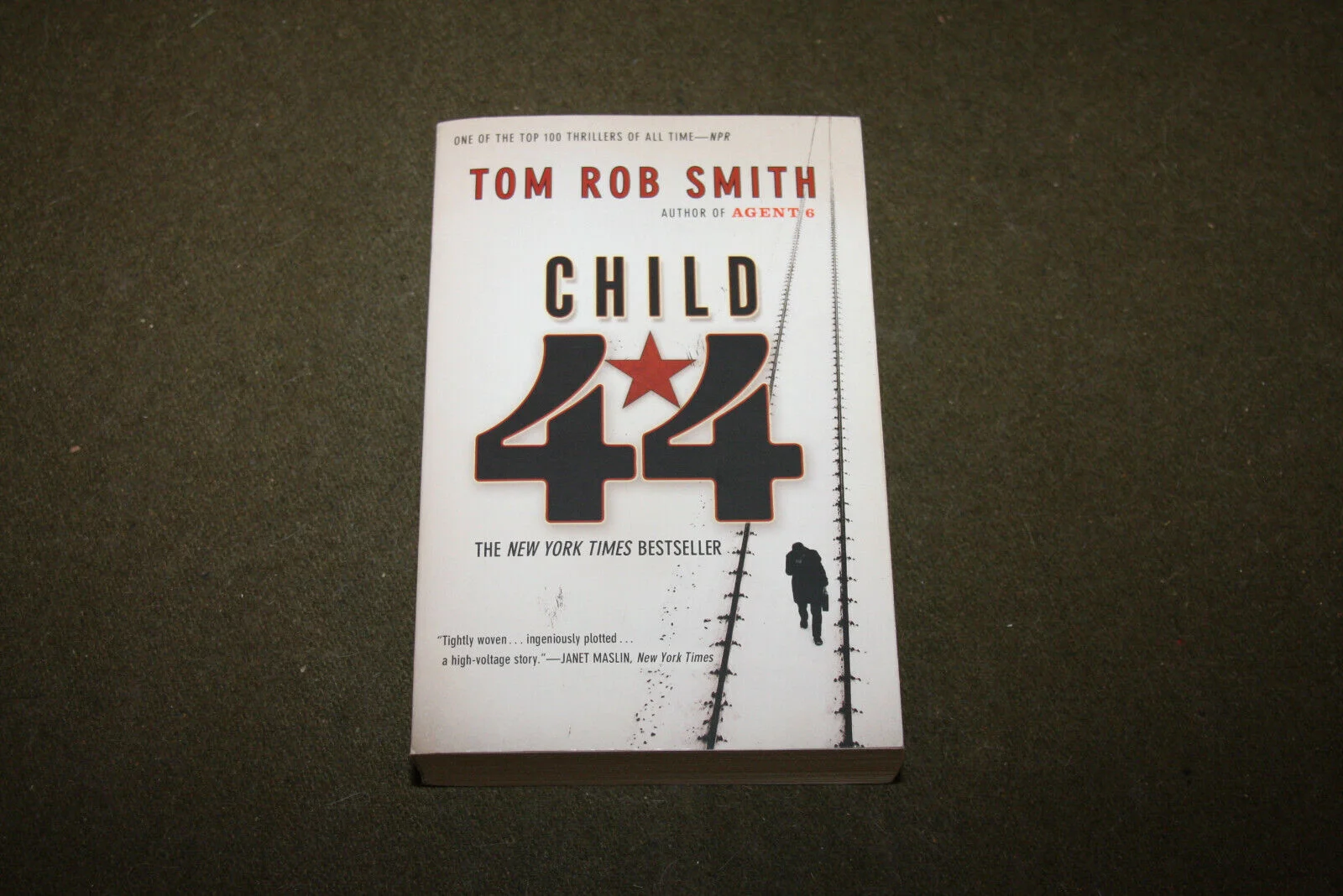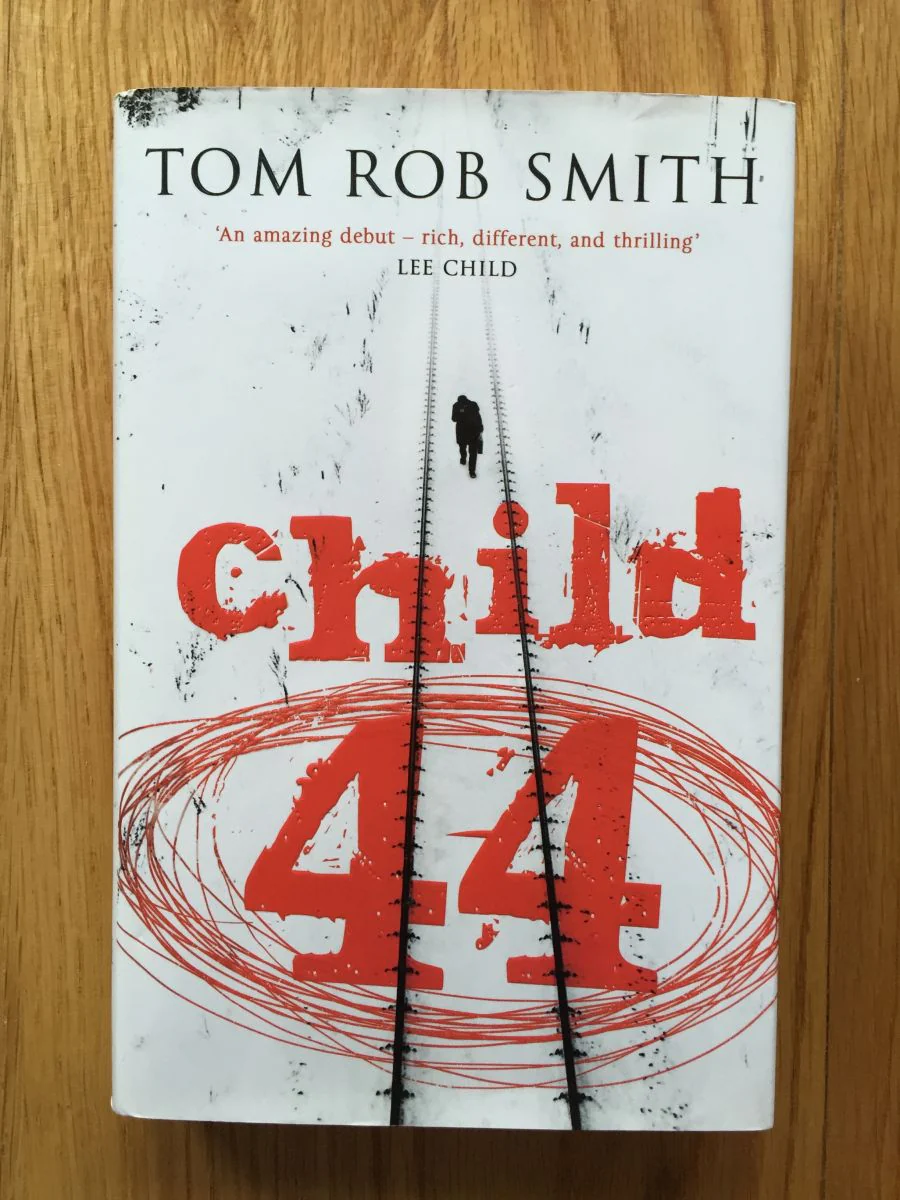As I turned the final page of “Child 44” by Tom Rob Smith, I found myself in a whirlwind of emotions. This book wasn’t just a casual read; it was a journey that left me both exhilarated and deeply unsettled.
My foray into “Child 44” began on a rainy weekend when I was craving something different from my usual literary fare. A friend had mentioned this historical thriller set in Stalin’s Soviet Union, and the premise intrigued me. I’ve always been fascinated by that era, but I’ll admit, my knowledge was limited to dry historical accounts. Little did I know that this novel would plunge me headfirst into the terrifying realities of life under Stalin’s regime.
From the very first chapter, I was hooked. Smith’s writing immediately transported me to 1953 Soviet Union, a world so vividly portrayed that I could almost feel the chill in the air and the constant weight of suspicion. The story follows Leo Demidov, a former MGB agent, as he investigates a series of child murders in a state where “there is no crime.” It’s a premise that seems almost absurd until you realize the horrifying logic behind it.
What struck me most about “Child 44” was its ability to seamlessly blend historical fiction with a gripping crime narrative. Smith doesn’t just tell a story; he recreates a world. The oppressive atmosphere, the paranoia, the fear – it all felt palpable. There were moments when I had to put the book down, not because it was boring, but because the tension was almost unbearable.
The character development in this novel is nothing short of masterful. Leo Demidov’s journey from a loyal agent of the state to a man questioning everything he once believed in was incredibly compelling. I found myself rooting for him, even as I was horrified by some of his past actions. His relationship with his wife, Raisa, added another layer of complexity to the story. Their evolving dynamic mirrored the larger themes of trust, loyalty, and the search for truth in a world built on lies.
However, I must warn potential readers – this book doesn’t pull any punches. The violence is graphic and disturbing at times. There were scenes that made my stomach churn, particularly those involving the murders of children. Yet, I couldn’t dismiss these scenes as gratuitous. They served a purpose, highlighting the brutality of the era and the depths of human cruelty.
One passage that particularly stuck with me was when Leo first realizes the extent of the lies he’s been living under. Smith writes: “He’d believed in the State with a passion that bordered on the religious. He’d trusted it completely. And the State had lied.” This moment of realization was so powerful, so gut-wrenching, that I had to pause and reflect on my own beliefs and the dangers of blind faith in any system.
Smith’s writing style is another aspect that deserves praise. His prose is lean and efficient, yet capable of painting vivid pictures and evoking strong emotions. He has a knack for building tension, often through small details or seemingly innocuous conversations that suddenly take on sinister undertones. The pacing is relentless, driving the story forward while still allowing for moments of introspection and character development.
Reading “Child 44” wasn’t just an entertaining experience; it was also educational. It prompted me to delve deeper into the history of Stalin’s Soviet Union. I found myself researching the MGB, the collectivization policies, and even the real-life serial killer Andrei Chikatilo, on whom parts of the story are loosely based. This book didn’t just tell me about history; it made me want to learn more.
The novel also forced me to confront some uncomfortable truths about human nature. It explores how good people can be complicit in evil systems, how fear can corrupt even the strongest moral compasses, and how the search for truth can be both dangerous and necessary. These themes resonated with me long after I finished the book, prompting discussions with friends and family about morality, loyalty, and the nature of evil.
Would I recommend “Child 44”? Absolutely, but with a caveat. This isn’t a book for the faint-hearted. It’s intense, often disturbing, and requires a certain emotional fortitude. But for those who are willing to dive into its dark waters, it offers a rewarding and thought-provoking experience.
This novel is perfect for readers who enjoy complex, historically-grounded crime fiction. If you’re fascinated by Soviet history, enjoy moral dilemmas, or simply appreciate a well-crafted thriller, “Child 44” is a must-read. It’s the kind of book that stays with you, challenging your perceptions and leaving you with questions that linger long after you’ve closed its pages.
In conclusion, “Child 44” by Tom Rob Smith is more than just a thriller; it’s a powerful exploration of human nature set against the backdrop of one of history’s most oppressive regimes. It’s a book that entertains, educates, and provokes thought in equal measure. While it may not be an easy read, it’s certainly a worthwhile one. For me, it was a reminder of the power of fiction to illuminate the darkest corners of history and the human psyche.